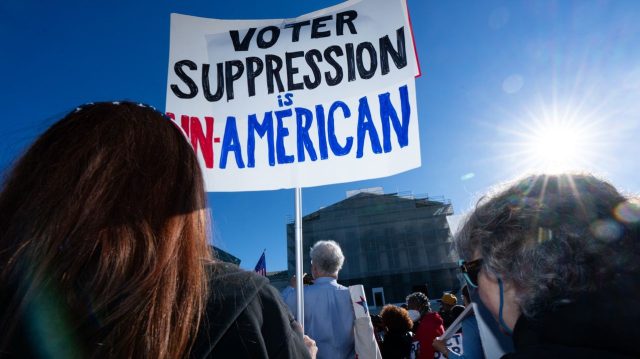
What happened
The Supreme Court’s conservative majority Wednesday appeared inclined to neuter the last remaining major provision of the 1965 Voting Rights Act. The justices heard oral arguments in Louisiana v. Callais, a challenge from a group of white voters to the state’s court-mandated creation of a second majority-Black congressional district. If the high court strikes down Section 2 of the landmark civil rights law, states would no longer be required to consider race when drawing congressional maps.
Who said what
The “increasingly conservative Supreme Court” has already “largely dismembered” the Voting Rights Act over the past 12 years, but they upheld Section 2 “just two years ago,” Nina Totenberg said at NPR. Justice Brett Kavanaugh, the “decisive fifth vote” in that case, said Wednesday he thought “there should be an endpoint to racial remedies like this one.” Notably, said CNN, Kavanaugh “signaled an interest” in a Trump administration solution that would “erode” the provision’s power “while not gutting it entirely.”
Even weakening the law’s protections for Black voters would “potentially trigger a political avalanche,” The Associated Press said. Without Section 2, Republicans could “eliminate upward of a dozen Democratic-held districts across the South,” The New York Times said, leaving Republicans perennially “favored to win the House even if they lost the popular vote by a wide margin.”
What next?
The Supreme Court “typically issues major rulings by late June or early July,” the Times said. But if it “acts quickly,” NPR’s Totenberg said, the court “could facilitate the elimination of Louisiana’s second majority-Black district prior to next year’s congressional election.”
States would no longer be required to consider race when drawing congressional maps






